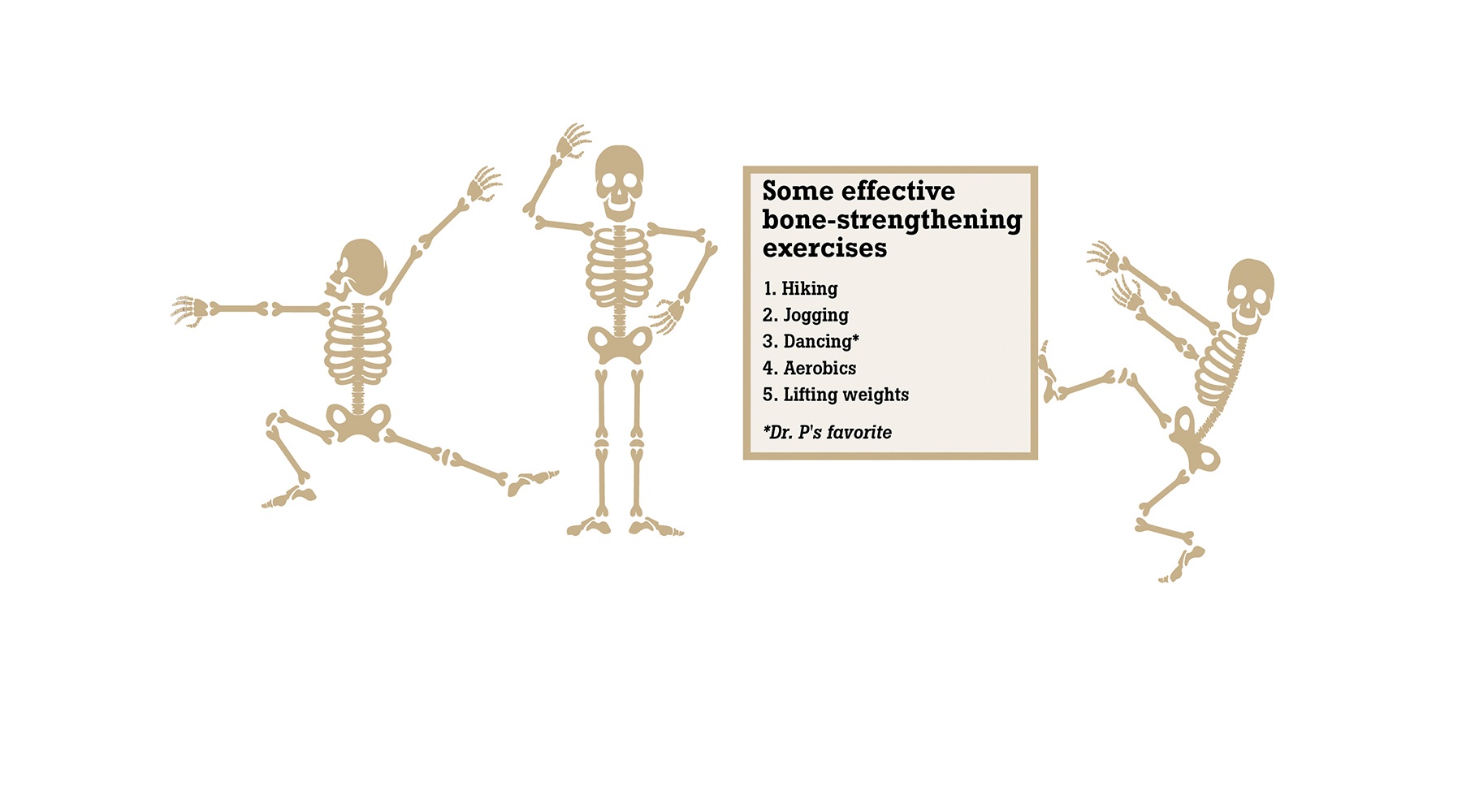Dear Dr. Prescott,
I am a 53-year-old postmenopausal woman and have been diagnosed with osteopenia (low bone density) in my spine and hips. I run about 15 miles a week and participate in barre, Pilates and yoga weekly. I also take calcium, magnesium and vitamin D supplements daily. My mother had osteoporosis, and my two older sisters have it, too. My doctor has suggested increasing my vitamin D supplement and trying osteoporosis-preventing drugs like Boniva or Fosamax.
My sister had bad reactions to both and takes Evista, another such drug. What can I do to avoid osteoporosis?
Roberta Roush, Oklahoma City
Bone is a living tissue and needs to be constantly broken down and replaced. Osteoporosis occurs when your body simply can’t keep up with this natural process.
In osteoporosis, bones become weak and brittle to a point where a fall, or even something as innocuous as bending over to pick up the morning paper, can result in a bone fracture. These fractures most commonly occur in the hips, wrists and spine.
Your doctor has diagnosed you with osteopenia, a condition that puts you at an increased risk for osteoporosis. Unfortunately, osteopenia can’t be cured, but there are ways to lower your risk of developing osteoporosis.
Exercise, calcium intake, vitamin D supplements and talking through options with your doctor are all key. Assuming you eat a well-balanced diet with plenty of dairy, fish, fruits and vegetables and don’t smoke, it appears you’ve checked off all the right boxes.
That brings us to the not so good news. If your loss of bone density continues to progress, it might be outside of your control, as you possess the two most significant risk factors for osteoporosis: family history and being postmenopausal.
Devising the best plan for you is tough without your exact bone density scores. But I’m guessing your physician recommended drug therapy because he or she may have noticed a trend in your scores and because of your family history.
One other option you might discuss with your doctor is estrogen replacement therapy. This treatment replaces hormones the body no longer makes in menopause. It’s typically a good preventative for osteoporosis, but it often carries side effects as well as an increased risk of certain cardiovascular diseases.
The bottom line is to stay on your current course. Continue to exercise, because remaining strong after menopause can go a long way to keeping your bones intact. And stay in touch with your doctor and keep asking lots of good questions like these!



